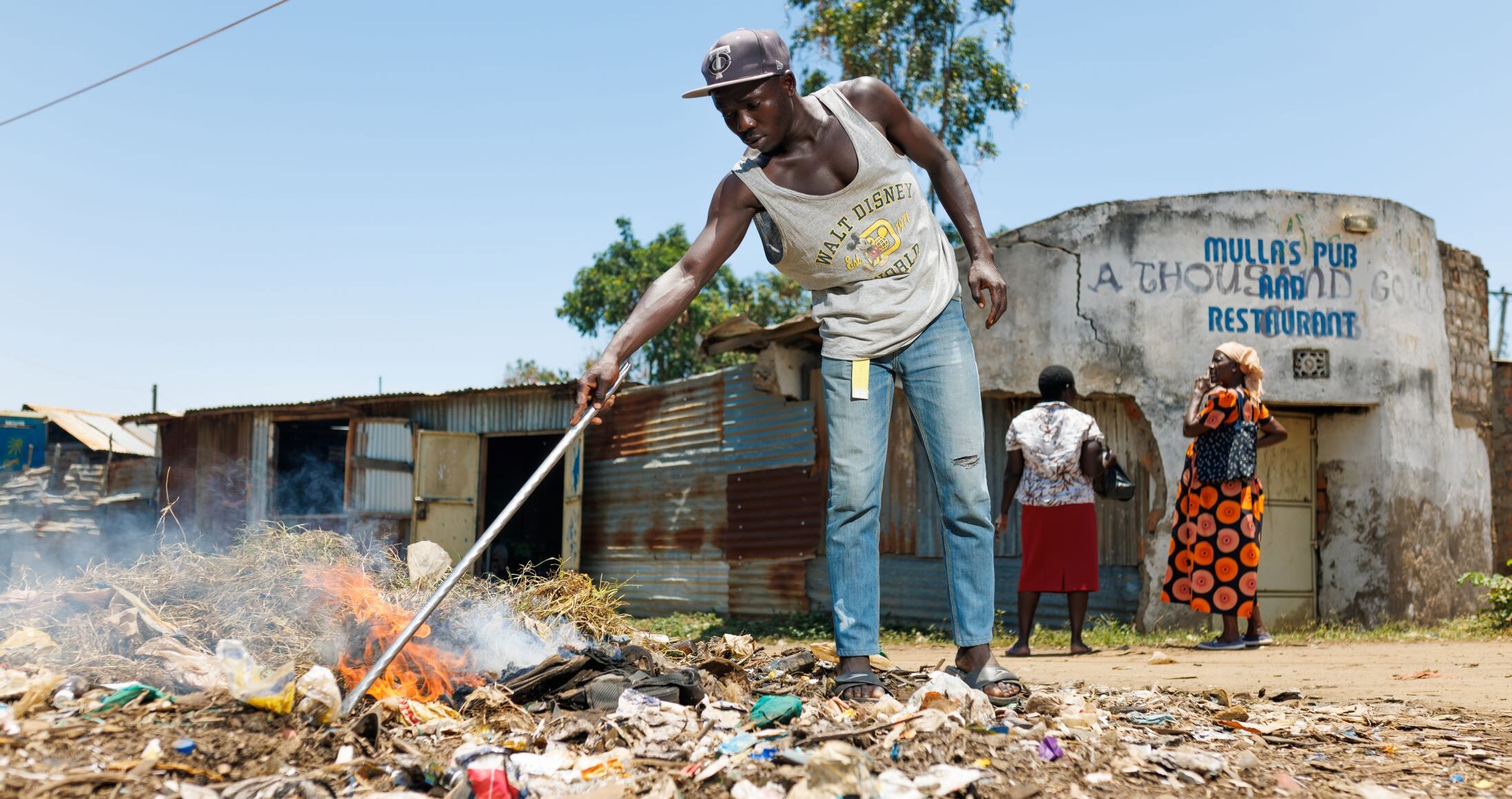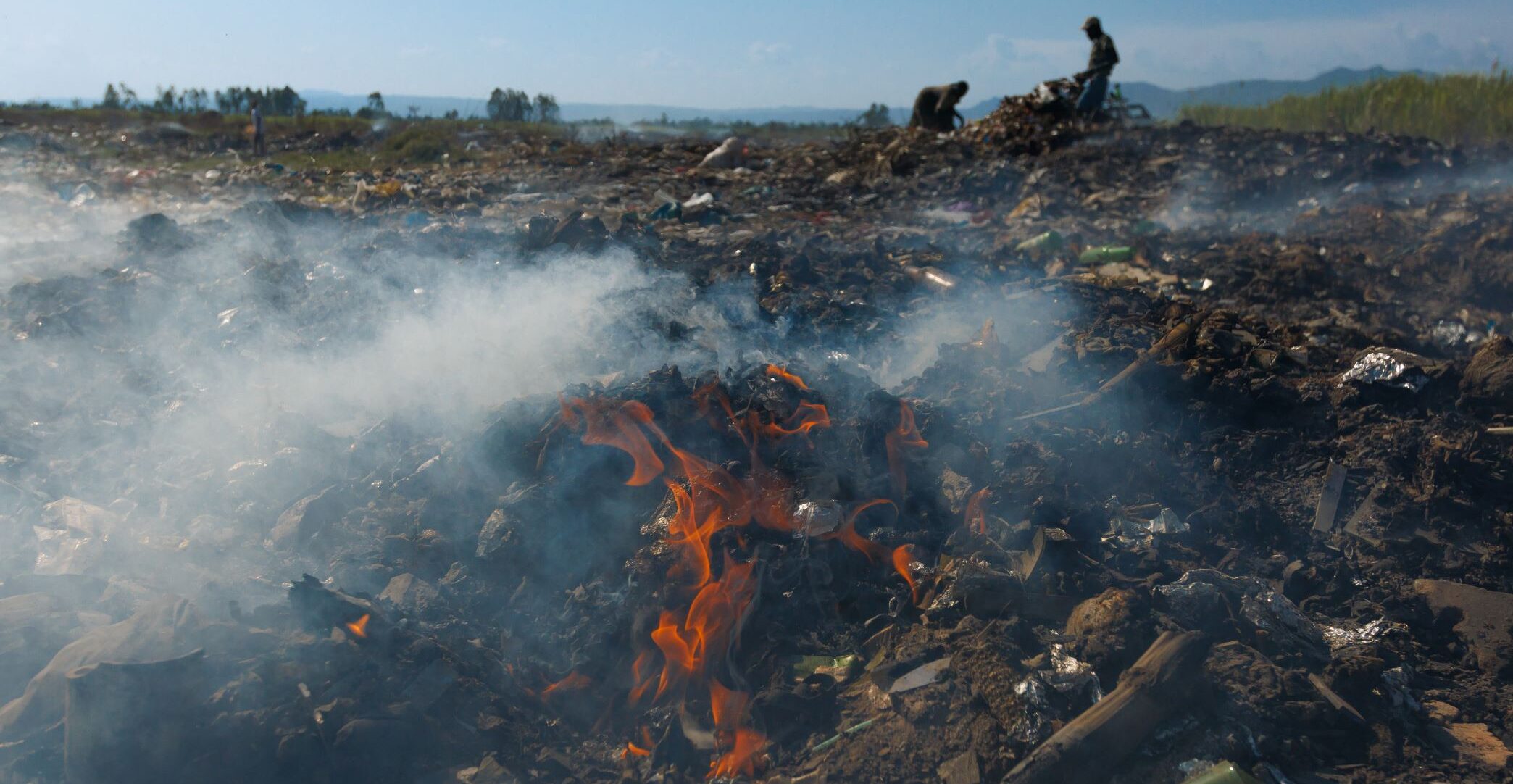Thousands of people across Africa stand to benefit from a newly endorsed roadmap to eliminate the open burning of waste, one of the most widespread and dangerous forms of pollution on the continent.
Originally agreed upon at the 2022 African Ministerial Conference on the Environment (AMCEN) meeting, the goal to end the open burning of waste by 2040, with a 60% reduction target by 2030, now has a formal roadmap to guide countries toward achieving it.
Endorsed at the 20th AMCEN meeting in Nairobi, the roadmap offers practical guidance for national and local governments to act now, helping cities across Africa create cleaner, healthier, and more inclusive urban environments.
Practical Action’s Head of Urban Services Lucy Stevens said, “We welcome this endorsement as a critical step towards cleaner, healthier cities across Africa. It recognises that ending open burning isn’t just an environmental priority; it is a public health and equity issue. The roadmap reflects what we have learned on the ground: that transformative change happens when multiple stakeholders come together at the city level. National policies and new financing also need to flow to support practical, community-driven solutions. The regional roadmap gives governments the direction they need, and we are ready to help turn it into action.”

The roadmap has already been put into practice in Kisumu, Kenya, where local authorities have worked with communities, waste pickers, and organisations, including Practical Action, to create a city action plan and pilot some of the prioritised actions.
The plan includes zero-cost, low-cost, and investment-level actions such as behaviour change campaigns, targeted community engagement, waste separation at the household level, and improved collection services. It recognises and builds on the contributions already being made by a wide range of waste actors, from informal waste pickers, collectors, and recyclers to larger private sector players, in combination with the County Government.
Benard Otieno Ojwang, Head of City Environment & Natural Resource Management, Kisumu City, said: “With this roadmap, there is a clear opportunity to catalyse investments that promote innovative, sustainable waste management. We are proud to have piloted in Kisumu and to be on the road to improving waste management for our communities”.
This success mirrors Practical Action’s work in Dakar and Thiès, Senegal, where we support local governments to co-design inclusive waste services that benefit the people most impacted by pollution, particularly women and informal waste workers.
Across both countries, we have seen how putting people at the centre of waste solutions reduces harmful emissions, improves health, and creates dignified work.
In sub-Saharan Africa, up to 90% of waste is either dumped or openly burned, contributing to toxic air pollution, climate change, and serious health risks, especially in informal settlements.
This roadmap, developed through a year-long consultation with over 250 stakeholders, offers a clear path for reversing that trend.
Gisore Nyabuti Brian, Secretary General of the Kenya National Waste Pickers Welfare Association, said, “Ending open waste burning is vital to protecting the health and dignity of communities across Africa. This roadmap represents hope and a call to action for all stakeholders.”

The roadmap comes at a time when African cities are growing rapidly and facing increasing pressure to manage waste sustainably and fairly. By focusing on locally led action and financing reform, the roadmap sets out a vision that’s both bold and achievable.
Practical Action is already working with local and national governments to bring this vision to life, ensuring the roadmap translates into real, lasting improvements for people on the ground.
This pioneering work is the result of extensive collaboration between, Engineering X a growing collaboration founded by the Royal Academy of Engineering and Lloyd’s Register Foundation, Practical Action, UN-Habitat, the Institute for Global Environmental Strategies (IGES), the International solid waste association (ISWA), and numerous stakeholders from national and local governments, financing institutions, and civil society.
The work is being funded by United Nations Environment Programme (UNEP) through the Climate & Clean Air Coalition.